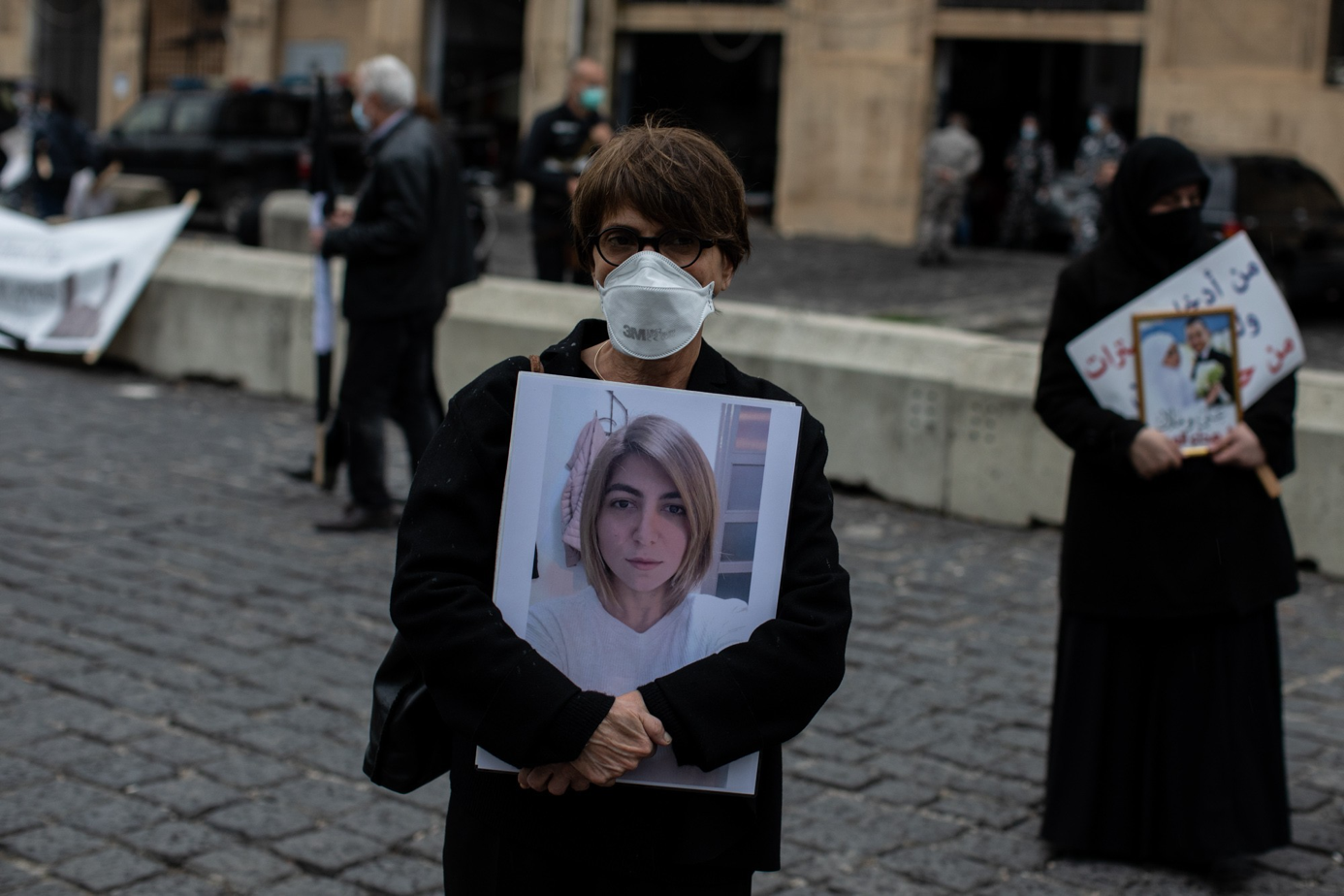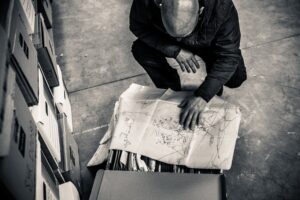“We just want to know the truth; this is what we are asking for,” a grieving mother told VICE World News. “After six months we don’t know anything.”
Annie Bartivarian is standing alone holding a picture of her daughter, Gaia Fodoulian. Slightly apart from the other mourners gathered outside the gates to the port of Beirut, Bativarian tells VICE World News how she was at home with her daughter the day she died.
“We heard the explosion and we both ran in different directions,” she recalls. “She ran towards the sitting room and I ran towards the kitchen. When I turned, I saw her on the floor.”
Gaia had taken the full force of the blast, and after being turned away from four hospitals, she died later from a brain haemorrhage.
Today marks six months since the devastating explosion in the port of Beirut — when 2,750 tonnes of ammonium nitrate caught fire and exploded, killing around 211 people and leaving thousands injured — and Bartivarian is still no closer to finding out the truth of what led to the blast.
A report by Human Rights Watch has condemned the current ruling class in Lebanon for systematic failures in their investigation. The report says the domestic investigation is “riddled with due process violations” and that attempts by political leaders to stop the investigation only reinforces the need for an independent international enquiry. Two former ministers who were charged in the case have filed a motion to replace the investigating judge, Fadi Sawwan, who himself has decided to suspend work on the case until the COVID-19 lockdown currently in place ends.
Despite the strict 24-hour lockdown, family members and loved ones of those killed in the blast gathered in front of the Palace of Justice and the Port of Beirut to honour those that died on the 4th of August last year and to demand answers.
“We just want to know the truth; this is what we are asking for,” Bartivarian said. “After six months we don’t know anything.”
In October, the FBI reported that it had reached no firm conclusion about what caused the explosion, but that it believed it was accidental.
Lebanon’s deep economic crisis and the COVID lockdown have left many people in a desperate state. Half the population are now believed to be living below the poverty line and government subsidies on food, fuel and medicine are quickly running out. This week the price of bread rose by 20 percent while the Lebanese pound, which is pegged to the US dollar, has lost 80 percent of its value.
A stalemate in the government over the formation of a new cabinet has stopped vital international financial aid being delivered to Lebanon. The confessional power-sharing system, in which the president is always Maronite Christian, the prime minister always Sunni Muslim and the speaker of the parliament always Shia Muslim, is believed by many in Lebanon to be problematic. The parties that hold these positions rose to power during Lebanon’s bloody 1975 to 1990 civil war, and they have no intention of giving up their seat at the table. This in turn has created alleged corruption and cronyism. French President Emanuel Macron has ruled out sending money to France’s former colony until this corruption is dealt with.
“We don’t care if the government is all Christian, or all Sunni, or all Shia,” Ali Hachem, 34, from the Bekaa Valley told VICE World News. As long as they are working for the people, we don’t care.”
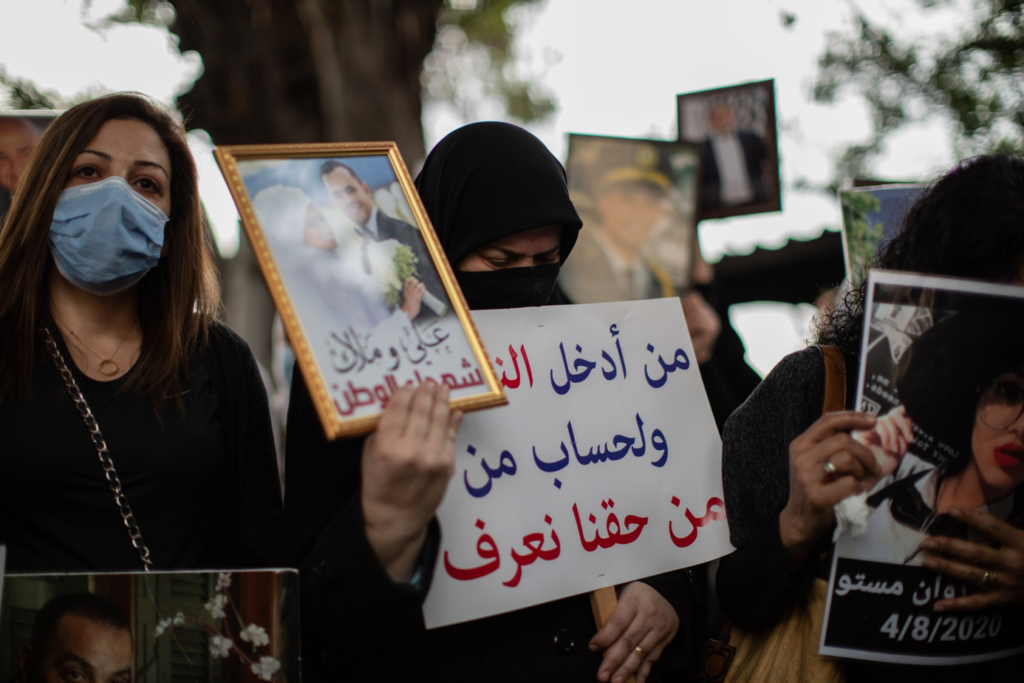
Meanwhile, people all over the country grow hungry and desperate as they wait for their government to come to an agreement. Last week saw six nights of violence in Tripoli, Lebanon’s second-largest city. People took to the streets to protest against the strict lockdowns and the lack of financial support in the poorest city on the Mediterranean. Anger soon turned to violence as the Internal Security Forces (ISF) used tear gas and rubber bullets to push back protesters outside its headquarters. On Thursday morning, Omar Tayba from Bab al-Tabbaneh, an extremely poor neighbourhood of Tripoli, died from a gunshot wound he received to his lower back the night before. Later that day, the ISF released a statement saying it acknowledged that its officers had fired live rounds. On Thursday night of last week, protesters reacted by burning down the Municipality building.
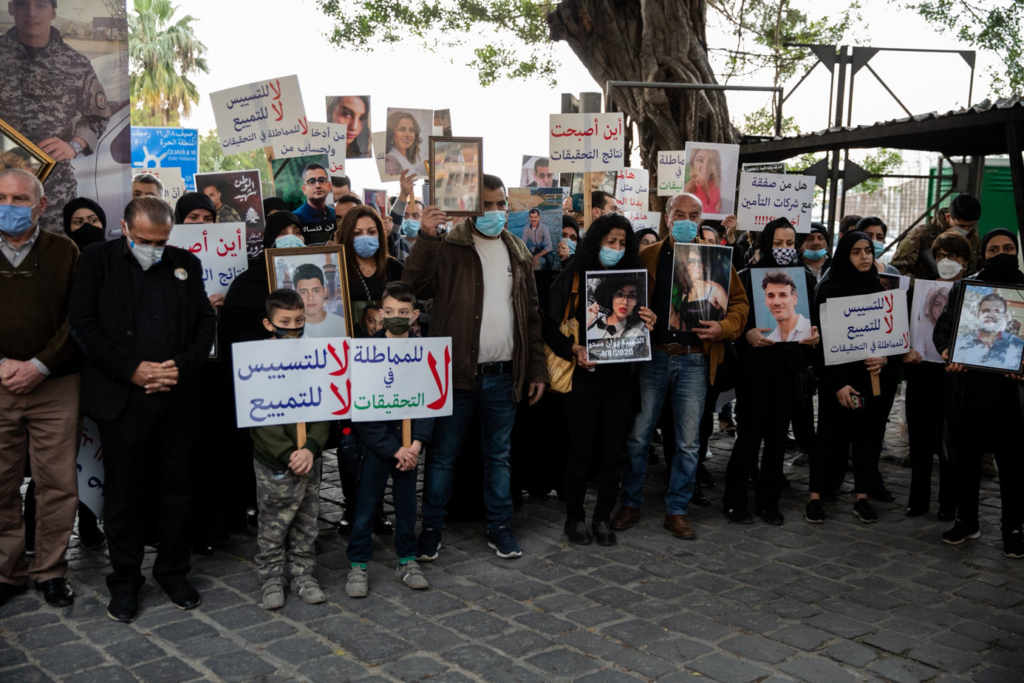

Standing outside the Palace of Justice, Leena Noueiri from Beirut laid out her demands and vented her frustration at the current political class.
“We want the justice department to do its work! We want all those responsible to be put behind bars,” Noueiri says. “All those responsible for the corruption, the killing and the theft of the public funds to be behind bars.”
Noueiri, whose home was destroyed by the blast last August, said the fact today was six months since the explosion was overwhelming. She went on to say that she doesn’t think anything has changed and that it is “business as usual.”
Back in front of the port, the atmosphere is subdued as clouds begin to gather. Dressed in black and holding photos of their loved ones who died, women silently cry as music is played from a speaker nearby. The mourners then enter the gates and proceed to the spot where the explosion took place, before returning to address the local TV cameras. Media personnel are still banned from entering the port without prior permission.
The anger becomes palpable as the fathers of those who died in the explosion shout into the microphones, demanding the truth. Demanding justice.
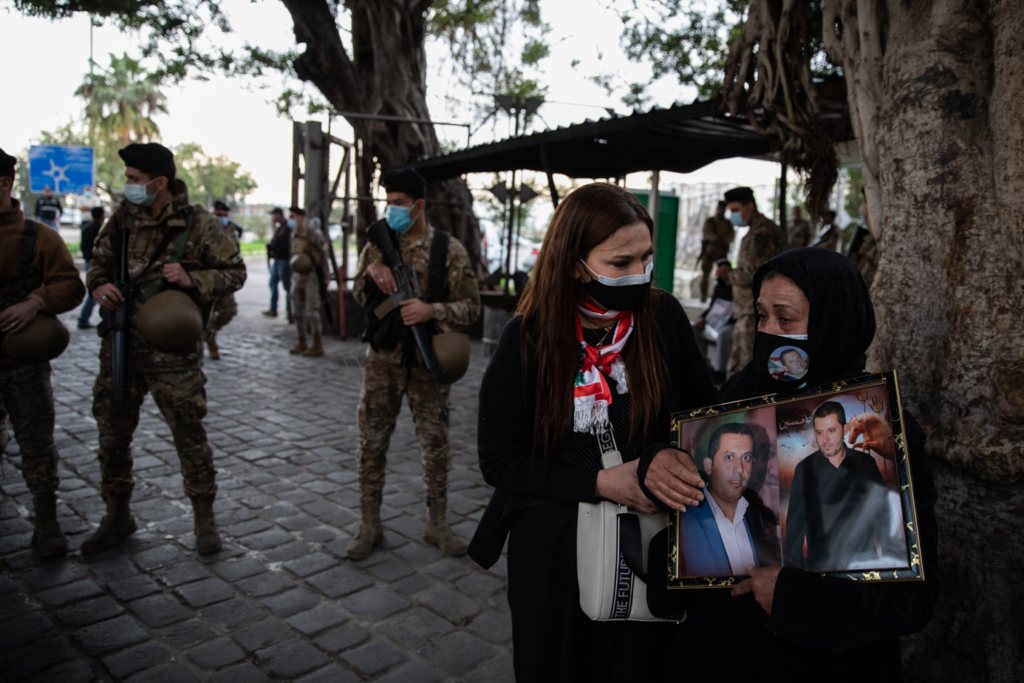
Truth and justice are something the people of Lebanon will have to wait a little longer to receive. With the economic situation worsening, hospitals at breaking point due to increasing daily coronavirus cases and seemingly no way out of the political deadlock, the future looks as dark as the clouds gathered above the port.
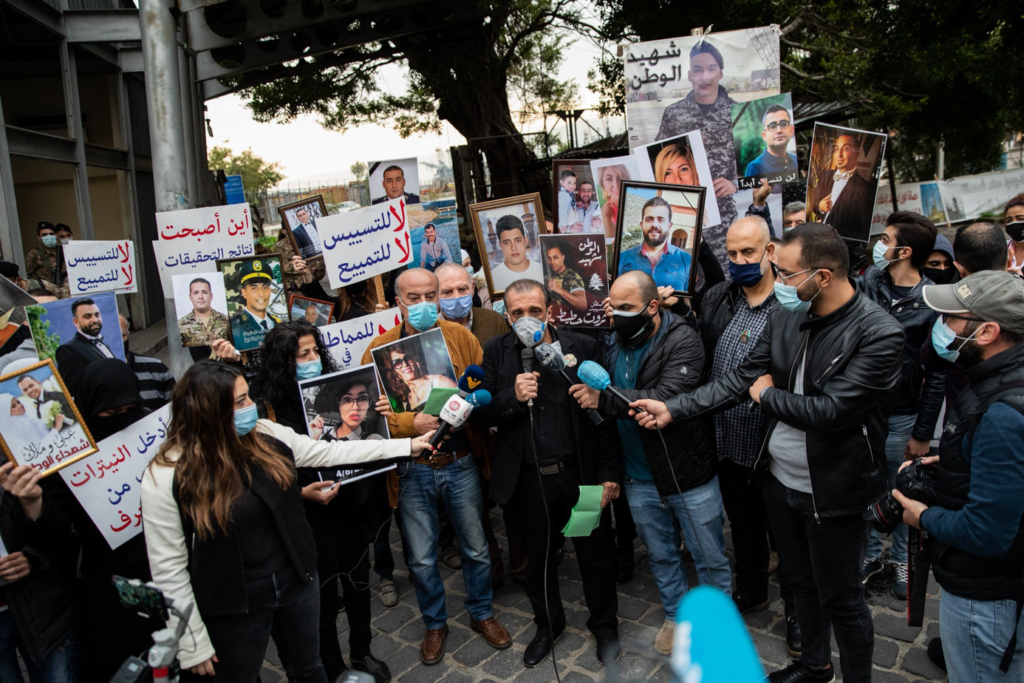
Bartivarian looks around one last time before voicing what justice would look like to her. “I want to know who did this and I want them to be punished. I’m not a judge, I’m not god, to decide how to punish – but I can ask for it.”

